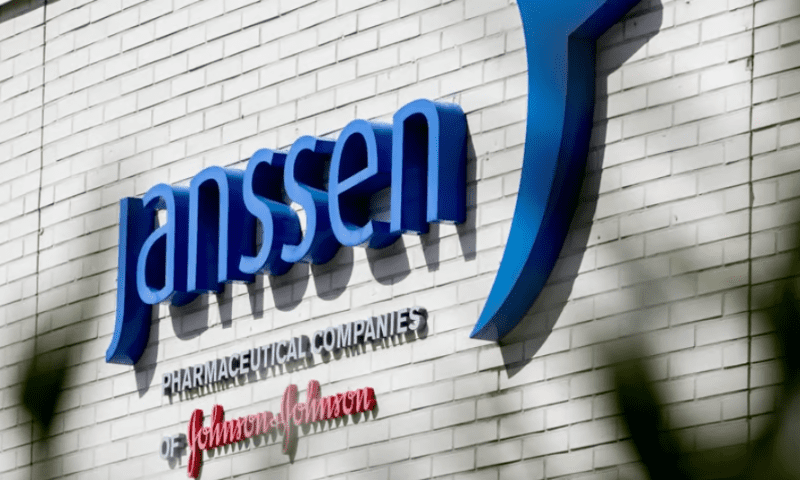On the heels of its FDA submission, Johnson & Johnson is unveiling results used to woo regulators on its bispecific antibody in multiple myeloma patients in dire need of successful treatment.
The new phase 2 data, released Monday at the American Society of Hematology annual meeting, showed that among patients who received a median of five prior lines of treatment, J&J’s talquetamab reached an overall response rate of 74.1% when administered weekly. The response rate dropped slightly to 73.1% when the dose was doubled but administered every two weeks. The company says that a nine-month median duration of response was achieved at both dose levels.
In more than a third of patients treated with the weekly, subcutaneous 0.4-mg/kg dose, talquetamab reached complete remission, while 32.4% of patients treated with 0.8 mg/kg every two weeks hit such a mark. The median progression-free survival in patients treated with the weekly dose was 7.5 months with a median follow-up of just under 15 months. J&J says the PFS in patients treated every two weeks was not yet mature due to a shorter follow-up time.
Cytokine release syndrome, a reaction to an overstimulation of the immune system, was prevalent in treated patients. Nearly 80% of patients treated weekly experienced the syndrome compared to 72.4% in patients treated every two weeks. And, while the vast majority of the cases were not severe, 2.1% of patients treated weekly experienced a grade 3 or 4 reaction. The majority of severe side effects came from cases of depleted white blood cells and low platelet count. Ultimately, nearly 5% of patients treated weekly ended treatment due to adverse events, and 14.7% had their dose reduced.
The new findings are an example of J&J looking to pad the stats on yet another potential instrument in its collection of myeloma treatments. The submission to the FDA late last week follows two approvals handed to the massive pharma from U.S. regulators over the course of the year. In February, the FDA approved J&J and Legend’s entry into the CAR-T race with the two’s B-cell maturation antigen-targeting Carvykti. And, less than two months ago, regulators gave an accelerated nod to J&J’s BCMA-focused bispecific Tecvayli.
Talquetamab takes on new targets beyond BCMA, homing in on both GPRC5D and CD3. Some of the treatments that participating patients failed to respond to include a proteasome inhibitor, an immunomodulatory agent and an anti-CD3 antibody. In a smaller cohort of patients that previously received T-cell direction therapy, talquetamab was found to be more effective in patients who didn’t respond to prior CAR-T therapy compared to patients who received a T-cell-focused bispecific antibody.
“Talquetamab is [a] testament to our ongoing commitment to deliver novel treatment approaches for patients who have exhausted all other options,” said Edmond Chan, M.D., hematology therapeutic lead in Europe, the Middle East and Africa, said in a release.
After receiving orphan-drug designation by both U.S. and European regulators in 2021, talquetamab nabbed breakthrough designation from the FDA in June 2022. A deadline for regulators to decide on the drug will become clear once they accept J&J’s submission application.

